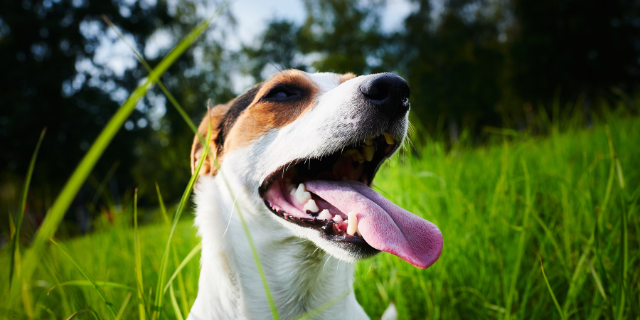If cuddles with your pet have become unpleasantly odorous of late, there are several potential causes to consider. Here, we’ll go through some of the common reasons pets develop bad breath and how we can help!
1. Dental disease
This is the most common cause of pongy breath in dogs and cats. It involves the build-up of plaque (a sticky film that contains bacteria) on unbrushed teeth, which then hardens over time to form calculus. If left untreated, this leads to gingivitis (gum inflammation), which then progresses to periodontitis (inflammation and infection of the tissues that support the teeth).
If we check your pet’s mouth and find dental disease, we will recommend a procedure to clean its teeth and assess the health of its teeth, gums, and jaw. We might also recommend the extraction of any significantly damaged teeth.
2. Gastrointestinal disease
If your pet suffers from recurrent gastrointestinal disease (which can be caused by a poor diet, a dietary intolerance or food allergy, chronic infection, or another gut disease process), you might notice them having frequent smelly burps or flatulence.
If you notice symptoms of poor gut function in your pet, we’d advise a prompt veterinary check-up to investigate further. We might also recommend other diagnostics such as blood tests, abdominal imaging, or faecal tests.
3. Kidney disease
In the later stages of kidney disease, reduced kidney function allows waste products to build up in the blood, which can change the smell of the pet’s breath. Pets with significant kidney disease can also develop painful mouth ulcers, contributing to smelly breath.
Kidney disease is diagnosed with routine blood and urine tests. Depending on the stage of kidney disease a pet is found to have and the suspected underlying cause, we can then make recommendations for treatment or management.
So, if you notice your pet is emitting odours that only a mother could love, we’d recommend booking a prompt consultation with our smell-savvy vets!

